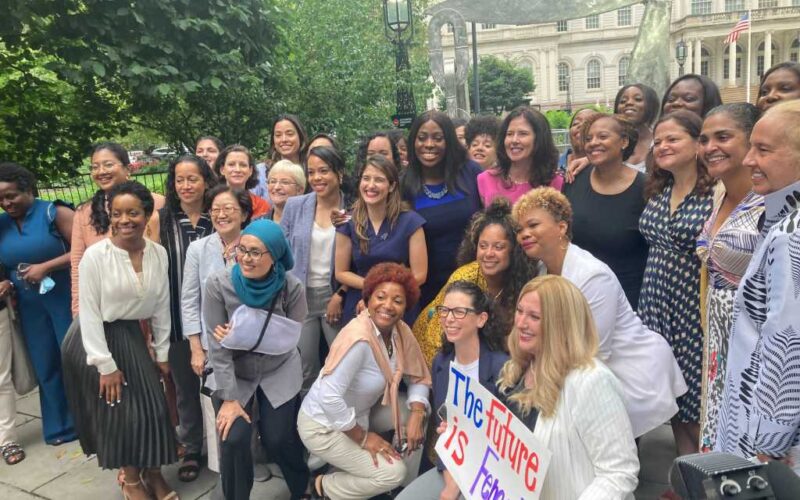The upcoming June 24 primary elections are a critical moment for New York City. Thanks to ranked choice voting (RCV), New Yorkers will have more say than ever as to who does — and just as importantly, who does not — represent them in this critical moment. Unlike past elections, voters can select up to five candidates they think should be elected, not just which of the frontrunners they believe can beat the other side.
At the New Majority NYC, we have long championed RCV because we know it creates a more equitable and inclusive political landscape where female candidates — especially women of color — can rise to leadership. RCV allows voters to support the women they believe can make a difference. It gives women the opportunity to run for office and succeed, even in races with multiple strong contenders, by ensuring that the voices of all voters are counted.
Without ranked choice voting, the races for City Council, borough president, mayor and other city-wide seats would look all too similar: most candidates would be pressured to think strategically and consolidate behind a frontrunner. Realistically, that means the numerous women and candidates of color running for mayor would be told to get out of the race in order to avoid “splitting the vote” against other candidates.
Across the city, insurgent candidates with bold ideas would similarly be told to drop out and fall in line behind the same entrenched politicians — some of whom have been credibly accused of sexual misconduct.
Ranked choice voting not only breaks that dynamic, but it leads to better candidates who can deliver more for voters. That’s not just rhetoric: in 2021, voters elected the first majority-female City Council in New York City history, with women candidates winning a commanding 31 of 51 seats. That reform led to significant change, with Adrienne Adams becoming the Council’s first Black speaker, and women elevated to a record number of leadership roles — 27 of 39 positions — on committees and subcommittees.
As a result, the Council passed legislation that made a real difference when it mattered. When the U.S. Supreme Court overturned Roe v. Wade in 2022, the Council acted quickly to protect and expand access to reproductive care in New York — including a seven-figure commitment to abortion access, the largest new initiative in the nation.
Women on the Council drove legislation that expanded child care programs, protected families from price gouging on baby formula during the pandemic, and addressed pay equity among municipal workers citywide.
Those tangible wins were only possible because of RCV, which helped voters break down the persistent barriers that had long kept political power in the hands of the same few. It created new opportunities for communities long shut out of office, and, most importantly, made it possible for multiple women to seek the same seat without dividing the vote. And it allowed a new generation of diverse candidates to run for office and win without waiting their turn.
While the federal administration works to roll back progress on diversity and social justice, voters have an opportunity on June 24 to once again elect candidates who will protect our future.
Ranked choice voting will enable women across every borough, from all backgrounds and perspectives, to share their positive vision for the city and win — competing for every voter, even as their second or third choice. It will give voters a pathway to stopping bad candidates who continue to rely on their connections and empower voters to support strong women candidates without any of the same baggage.
When our elected officials look like our city and understand our experiences, they can represent all of our interests. Thankfully, in a moment when it feels like women and communities of color are losing ground every day, we have the power and tools here in New York to safeguard and even strengthen our victories.
Instead of electing the same entrenched politicians who have failed to deliver, we can elect inspiring women leaders who will continue to protect abortion rights, stop draconian cuts to libraries and senior citizen programs, improve access to reduced subway and bus fares, and increase health care options for new mothers.
Ranked choice voting ensures women’s voices aren’t sidelined, and that voters — not entrenched politicians working the system — decide who will fight for us over the next four years.
Simpson is the executive director of The New Majority NYC, a nonprofit organization dedicated to building political power for all women.








